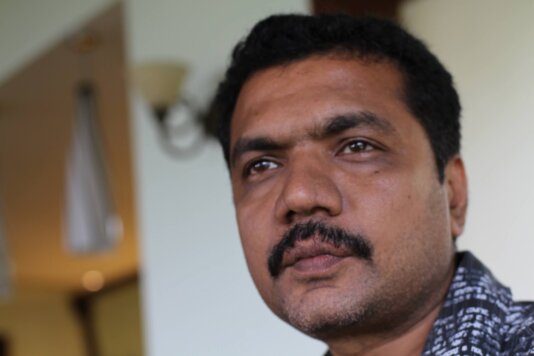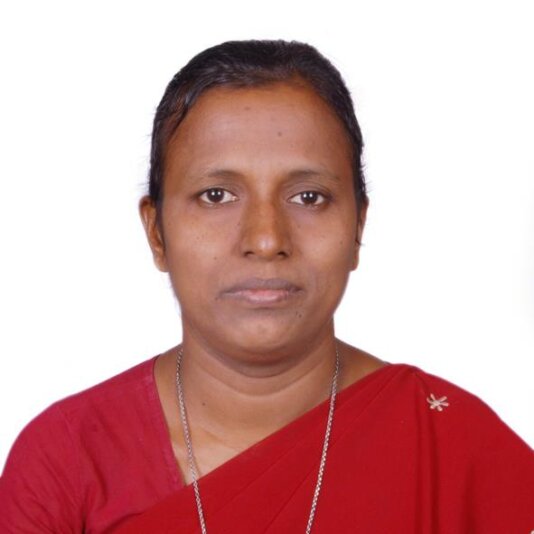- About
- Topics
- Picks
- Audio
- Story
- In-Depth
- Opinion
- News
- Donate
-
Signup for our newsletterOur Editors' Best Picks.Send
Read, Debate: Engage.
| December 19, 2023 | |
|---|---|
| topic: | Human Trafficking |
| tags: | #India, #Oman, #domestic workers, #women's rights, #slavery, #human trafficking, #immigrant workers |
| located: | India, United Arab Emirates, Oman |
| by: | Rejimon Kuttappan |
In mid-October, Sumitha Kumari (an alias), a trafficked Indian domestic worker in Oman’s southern town of Salalah, was able to share with me the location of a nearby shop on WhatsApp. She sent it from a manpower supply agency's "shelter," a room at their office building, where Kumari was held with other along domestic workers.
Kumari, in need of a sanitary pad but lacking sufficient funds to buy one, faced restrictions preventing outsiders from entering the shelter to provide assistance. Arrangements were then made for an Indian social worker in Salalah to visit the shop and deposit cash in Kumari's name. She could then visit the shop, accompanied by an assistant from the manpower supply agency office, to buy the sanitary pad.
This was possible because Kumari was able to share her location through WhatsApp, a skill she had acquired a few weeks earlier.
Kumari is one of countless Indian women who migrate to foreign countries in search of a better life. Unfortunately, their limited knowledge of smartphones, particularly in accessing and sharing their location, poses a significant challenge for social activists aiming to support them.
During my stay in Oman, I personally witnessed this challenge firsthand while engaging in rescue operations of stranded domestic workers. In many cases, I was forced to provide step-by-step instructions through voice notes, guiding them through the process of sharing their current location via WhatsApp.
Kumari, a divorced middle-aged woman from a village in the South Indian state of Tamil Nadu, sought employment to support her bed-ridden mother when she was approached by an agent. This agent, hailing from her hometown and having connections in the Arab Gulf, trafficked her to the United Arab Emirates and then to South Oman on a tourist visa under false promises of employment and benefits.
After landing in the UAE, Kumari was contacted by the agent over the phone. She was advised to collect the ticket to Oman, which the agent had arranged, and fly to Salalah, the southern tip of Oman.
"I didn’t even know that Oman was a different country," Kumari told FairPlanet, recounting the ordeal she faced in Oman over the phone.
She endured grueling 14-hour workdays at the Omani house, was given meager and stale food and faced delayed or denied salary payments, essentially experiencing forced labour. In these dire circumstances, she desperately sought a way out, yearning for rescue.
When Kumari made desperate calls to India, an Indian lawyer extended a helping hand. But without knowing her exact location, he was unable to pinpoint her whereabouts and initiate a rescue operation.
"When I asked her to send me her location on WhatsApp, she couldn’t. It surprised me," Hubertson Tomwilson, an Indian lawyer and rights activist, told Fair Planet. "Then, [in] a WhatsApp voice note, I had to tell her the steps how to share the location [through the app]."
With Hubertson's support, Kumari finally mustered up the courage to speak to her employer, who eventually dropped her back at the shelter of the manpower agency, from where she was "bought."
Now, she is once again stuck at the manpower agency, which demands roughly 1,300 USD for her release. It is from this shelter that she has sent me the WhatsApp location seeking help to buy a sanitary pad.
In Oman, an Arab employer is eligible to pay a specified fee and possess a visa for a foreign national. However, in domestic worker recruitment, sending countries implement strict regulations to protect workers' rights and ensure decent working conditions. But manpower agencies often circumvent these rules and facilitate the illegal "sale" of domestic workers to Arab employers who "buy" them.
Kumari is among thousands who were sold in Oman as part of the domestic worker trafficking chain.
Neither Hubertson nor migrant rights activists are new to teaching stranded domestic workers from rural India in the Arab Gulf how to send WhatsApp locations to seek assistance. This is because, through the window of the house they work in, domestic workers may only see a mosque or a shop, which is not enough to locate them.
Additionally, as these domestic workers are often "locked up" in a large house and most of them can’t read Arabic, making WhatsApp location often the only option to locate them.
Since 2015, the Indian government has implemented strict rules and an online platform for women domestic workers migrating to 18 Emigration Clearance Required countries, including the six Gulf Cooperation Council countries, where the labour laws are not friendly.
But women from rural India fall prey to rogue agents, skip the guardrails set by the government for safe migration and often end up in forced labour and modern-day slavery.
From 2020 to June 2023, some 650 complaints have been registered against illegal recruitment agencies in India. Additionally, 2,548 illegal agents have been listed on the Indian government portal for the awareness of potential migrants.
Speaking to Fair Planet, Sister Josephine Valarmathi from the Tamil Nadu Domestic Workers Welfare Trust, said that climate change-induced job loss in the agrarian sector is pushing women from rural India to desperately look for new employment opportunities.
"Eventually, they fall prey to fraud agents and get stranded in foreign lands," she said. "Unfortunately, the women in rural India still do not know how to navigate a smartphone or use even applications like WhatsApp."
She added, "Many a time, we have to teach them the basics of using a basic smartphone and certain common apps."
Quoting a study by IDC India, Indian media has reported that in 2022, only 35-40 per cent of the 122 million smartphones sold in the country were bought in rural areas.
Additionally, a different report claims that internet penetration in rural India still stood at 48.7 per cent of the total population as of early 2023.
As per a 2022 Oxfam Report, a significant digital divide exists in India, with 61 per cent of males possessing mobile devices compared to only 31 per cent of females, resulting in a 30 per cent disparity. The report further highlights that caste influences smartphone ownership in India.
"On average, the general category (upper caste) is 10 per cent more likely to have a phone than lower caste," the report reads.
Caste is an ancient hierarchical system developed in India, which categorises individuals into distinct social classes based on factors such as birth, occupation and ritual purity.
Speaking to FairPlanet, Mini Mohan, a sociologist based in Kerala, India, said that it is lower caste women who migrate to the Arab Gulf as domestic workers due to the climate-change related agrarian crisis.
"Unfortunately, these women either don’t own a smartphone or don’t know the basic navigation of apps," Mohan said.
Meanwhile, Rafeek Ravuther, a migrant rights activist at the Kerala-based Centre for Indian Migrant Studies, which is a partner of the Manila-headquartered Migrant Forum in Asia, a regional network of migrant rights grassroot level organisations, told FairPlanet that knowledge of smartphone and app usage should be imparted in the pre-departure programmes conducted by the Indian government.
In 2018, the Indian government has been launched a free Pre-Departure Orientation Training (PDOT) for emigrants heading abroad for employment opportunities.
The eight-hour orientation training aims to familiarise participants with the norms and regulations of their destination country, educate them about their rights and inform them of the welfare measures provided by the Indian government.
Beginning with only four centres in Delhi and Mumbai, the PDOT now runs 39 centres across India in partnership with state governments and national skill development centres.
"In addition to dos and don'ts, the government should train the workers, especially the women domestic workers, on smartphone use, such as sending WhatsApp locations and making video calls," Ravuther added, "[since] the women who migrate for domestic work are from rural India and are confined to the four walls of their employers' homes without much access to the outside world."
For the past two decades, Rafeek has hosted the television programme "Kairali TV," dedicated to locating missing migrants around the world.
"We are in the AI era. But in my experience, a migrant worker knowing location sharing is a must in a foreign land," he concluded.
WhatsApp introduced its location-sharing feature in 2012, followed by live location sharing in 2017. Despite these advancements, many women domestic workers still struggle to use these features during dire situations.
Image by Patrick Hendry



By copying the embed code below, you agree to adhere to our republishing guidelines.
